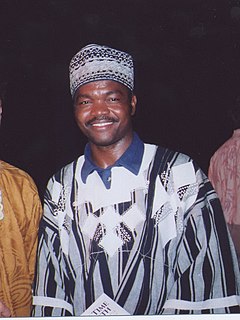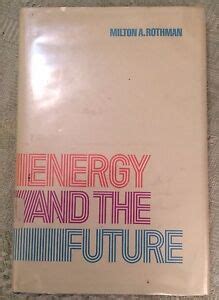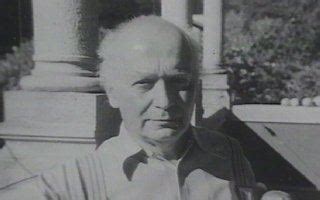A Quote by Malidoma Patrice Some
The power of nature exists in its silence. Human words cannot encode the meaning because human language has access only to the shadow of meaning.
Related Quotes
To most humans, a universe consisting of particles banging about and doing what they have to do seems cold, barren, and without meaning. Meaning, however, is not something that floats in space, permeating the universe like a nebulous, mystical cloud. ... Meaning arises out of the working of the human mind, and therefore exists only in the human mind. The meaning of existence is whatever you want to make of it.
Human life has no meaning independent of itself. There is no cosmic force or deity to give it meaning or significance. There is no ultimate destiny for man. Such a belief is an illusion of humankind's infancy. The meaning of life is what we choose to give it. Meaning grows out of human purposes alone. Nature provides us with an infinite range of opportunities, but it is only our vision and our action that select and realize those that we desire.
For language to have meaning, there must be intervals of silence somewhere, to divide word from word and utterance from utterance. He who retires into silence does not necessarily hate language. Perhaps it is love and respect for language which imposes silence upon him. For the mercy of God is not heard in words unless it is heard, both before and after the words are spoken, in silence.
Many things that human words have upset are set at rest again by the
silence of animals. Animals move through the world like a caravan of
silence. A whole world, that of nature and that of animals, is filled
with silence. Nature and animals seem like protuberances of silence.
The silence of animals and the silence of nature would not be so great
and noble if it were merely a failure of language to materialize.
Silence has been entrusted to the animals and to nature as something
created for its own sake.
The story of the Fall always fascinates me as a play ground, but I cannot find any profound meaning in it, because of my 'liberal' view of human nature: I cannot believe in a state of original innocence, still less in a profound meaning in it, and I am always minimising the conception and the extent of Sin and the sinfulness of sex.
In the search for meaning we must not forget that the gods (or God, for that matter) are a concept of the human mind; they are the creatures of man, not vice versa. They are needed and invented to give meaning and purpose to the struggle that is life on Earth, to explain strange and irregular phenomena of nature, haphazard events and, above all, irrational human conduct. They exist to bear the burden of all things that cannot be comprehended except by supernatural intervention or design.
As soon as you look at the world through an ideology you are finished. No reality fits an ideology. Life is beyond that. That is why people are always searching for a meaning to life. But life has no meaning; it cannot have meaning because meaning is a formula; meaning is something that makes sense to the mind. Every time you make sense out of reality, you bump into something that destroys the sense you made . Meaning is only found when you go beyond meaning.
The continually progressive change to which the meaning of words is subject, the want of a universal language which renders translation necessary, the errors to which translations are again subject, the mistakes of copyists and printers, together with the possibility of willful alteration, are themselves evidences that human language, whether in speech or print, cannot be the vehicle of the Word of God.
I draw because words are too unpredictable. I draw because words are too limited. If you speak and write in English, or Spanish, or Chinese, or any other language, then only a certain percentage of human beings will get your meaning. But when you draw a picture everybody can understand it. If I draw a cartoon of a flower, then every man, woman, and child in the world can look at it and say, "That's a flower.
I'm very concerned with questions of language. This is what I think of when I think of myself as a writer: I'm someone who writes sentences and paragraphs. I think of the sentence - not only what it shares but, in a sense, what it looks like. I like to match words not only in a way that convey a meaning, possibly an indirect meaning, but even at times words that have a kind of visual correspondence.
There is something myopic and stunted in focussing only on the meaning of words and sentences. And this myopia is especially unfortunate when combined with a rather abstract view of a language as a set of elements and rules for combining these. For the result is to divorce enquiry into meaning from attention to the way words - and gestures, facial expressions, rituals and so on - are embedded in practices, in what Wittgenstein called 'the stream of life'.
One of the reasons I love language is that concerning semiotics, language is an arbitrary sign system, which means the signs within it are free-floating, but we put them in a certain order to get them to have meaning for us. If we left them alone, they'd be like water, like the ocean. It would be just this vast field of free-floating matter or signs, so in this way, I think language and water have much in common. It's only us bringing grammar and syntax and diction and the human need for meaning that orders language, hierarchizes it.
Contemporary poetry ... tries to transform the sign back into meaning:
its ideal, ultimately, would be to reach not the meaning of words, but the
meaning of things themselves. This is why it clouds the language, increases
as much as it can the abstractness of the concept and the arbitrariness
of the sign and stretches to the limit the link between signifier and signified.
We live in a world filled with language. Language imparts identity, meaning, and perspective to our human community. Writers are either polluters or part of the clean-up team. Just as the language of power and greed has the potential to destroy us, the language of reason and empathy has the power to save us. Writers can inspire a kinder, fairer, more beautiful world, or invite selfishness, stereotyping, and violence. Writers can unite people or divide them.






































